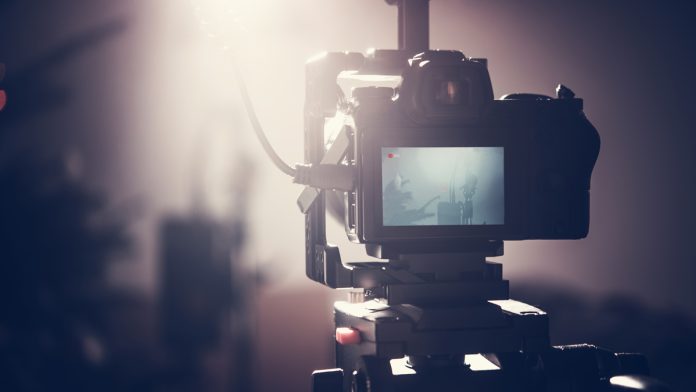The film industry is undergoing a profound transformation as artificial intelligence reshapes storytelling, production, and creative processes. As traditional cinematic techniques merge with groundbreaking technologies, the debate intensifies over the future of art and the role of human creativity. This article explores a range of topics central to understanding this evolution, offering insight into the ways in which technology both challenges and enhances traditional filmmaking practices. At its heart, the discussion reflects on the Ethical and Creative Implications of AI in Filmmaking, a theme that underscores every facet of this emerging narrative.
| Table of Contents | |
|---|---|
| I. | Authenticity in AI-Generated Storytelling |
| II. | Intellectual Property and Copyright in AI-Driven Films |
| III. | Bias, Representation, and Ethical Fairness in AI Algorithms |
| IV. | Human-AI Collaboration: Redefining Creative Partnerships |
| V. | The Impact of AI on Film Aesthetics and Directorial Vision |
| VI. | Transparency and Accountability in AI-Assisted Filmmaking |
| VII. | Deepfakes, Digital Actors, and the Redefinition of Performance |
| VIII. | Democratization vs. Commercialization |
| IX. | Economic and Labor Impacts of AI in the Film Industry |
| X. | Developing Regulatory Frameworks for Ethical AI Use in Filmmaking |
Authenticity in AI-Generated Storytelling
AI-powered tools now enable filmmakers to generate narratives that blur the line between human creativity and algorithmic design. While these technologies can craft engaging and intricate storylines, they also raise questions about originality and the soul of storytelling. Filmmakers face a dilemma: harness the efficiency and expansive potential of AI while preserving the emotional authenticity and unique human perspective that define classic cinema. This balance highlights the ever-present Ethical and Creative Implications of AI in Filmmaking, where technology must complement, not replace, human ingenuity.
Intellectual Property and Copyright in AI-Driven Films
With AI increasingly involved in generating scripts, visuals, and even music, traditional concepts of intellectual property are being challenged. The legal frameworks designed for human-created content struggle to address issues that arise when an algorithm contributes significantly to a film’s creative output. As stakeholders negotiate these murky waters, the dialogue around ownership and rights becomes essential, with debates intensifying over who should benefit from AI-aided productions. Such controversies underscore the Ethical and Creative Implications of AI in Filmmaking, compelling the industry to rethink copyright norms in a digital age.
Bias, Representation, and Ethical Fairness in AI Algorithms
AI systems rely on vast datasets to learn and produce content, yet these datasets can inadvertently embed historical biases and perpetuate stereotypes. This risk has significant consequences for representation on screen, potentially skewing narratives and marginalizing diverse voices. As developers and artists work to refine these systems, there is an urgent need for more inclusive data practices and ethical guidelines to ensure fair representation. Here, the Ethical and Creative Implications of AI in Filmmaking are manifest in the commitment to produce films that celebrate diversity while actively challenging ingrained prejudices.
Human-AI Collaboration: Redefining Creative Partnerships
The evolving partnership between filmmakers and AI technology is redefining creative collaboration. Rather than viewing AI as a replacement for human talent, directors, writers, and producers are increasingly using these tools to enhance brainstorming, editing, and even decision-making processes. This symbiotic relationship has given rise to new forms of storytelling that merge human intuition with algorithmic precision. In this collaborative space, the Ethical and Creative Implications of AI in Filmmaking are clearly visible, as the industry seeks to integrate technology without sacrificing the personal touch that distinguishes human artistry.
The Impact of AI on Film Aesthetics and Directorial Vision
Advancements in AI have begun to transform the visual language of cinema. Tools that automate color grading, scene composition, and visual effects allow directors to experiment with novel aesthetics and redefine their signature styles. However, as technology assumes a larger role in crafting visuals, concerns arise regarding the dilution of a director’s personal vision. The delicate interplay between technical innovation and artistic expression prompts filmmakers to strike a balance that preserves their unique identity while embracing new techniques. This challenge encapsulates the Ethical and Creative Implications of AI in Filmmaking, where modernity meets tradition on the silver screen.
Transparency and Accountability in AI-Assisted Filmmaking
As AI algorithms take on more critical roles in film production, the need for transparency in how these systems function has never been greater. Studios and independent filmmakers alike are calling for clearer documentation of AI processes to ensure that creative decisions are both understandable and justifiable. Such accountability is vital for building trust among audiences and industry professionals, as it prevents hidden biases and errors from undermining the film’s integrity. Through this lens, the Ethical and Creative Implications of AI in Filmmaking emphasize that responsible innovation must be paired with openness and rigorous ethical oversight.
Deepfakes, Digital Actors, and the Redefinition of Performance
Technologies like deepfakes and digital avatars are revolutionizing the way performances are captured and presented on screen. These innovations offer filmmakers unprecedented flexibility to recreate historical figures or generate entirely new characters, bypassing the constraints of traditional casting. However, they also prompt ethical questions regarding authenticity, consent, and the potential erasure of human performance. As the line between digital fabrication and genuine acting performance blurs, the industry grapples with maintaining the integrity of cinematic art. In this arena, the Ethical and Creative Implications of AI in Filmmaking become a crucial area of reflection and debate.
Democratization vs. Commercialization
The rise of AI in filmmaking is simultaneously democratizing the creative process and reinforcing existing commercial power structures. On one side, accessible AI tools empower independent creators and small studios to produce high-quality content without prohibitive costs. On the other, these very tools can consolidate control within major studios that have the resources to invest in cutting-edge technologies. This tension between inclusivity and market dominance forces industry leaders to reconsider how to best support diverse voices while sustaining financial viability. Thus, the Ethical and Creative Implications of AI in Filmmaking remind us that innovation must be pursued with an eye toward both opportunity and equity.
Economic and Labor Impacts of AI in the Film Industry
As AI automates various stages of film production, its impact on the labor market is profound. While these technologies can reduce costs and streamline processes, they also pose challenges for traditional roles within the industry. The shift toward automation raises concerns about job displacement and necessitates new training programs for a modernized workforce. Balancing efficiency with fair labor practices requires thoughtful strategies and proactive policy-making. In examining these shifts, the Ethical and Creative Implications of AI in Filmmaking serve as a reminder that technological progress must be harmonized with the economic realities and human dimensions of the creative sector.
Developing Regulatory Frameworks for Ethical AI Use in Filmmaking
As the integration of AI in filmmaking accelerates, the need for comprehensive regulatory frameworks becomes increasingly urgent. Policymakers, industry leaders, and creative professionals are engaging in critical discussions to establish standards that protect intellectual property, ensure ethical use, and safeguard creative integrity. These emerging regulations aim to strike a balance between fostering innovation and preventing misuse of technology. In navigating this complex legal landscape, stakeholders are continually evaluating how best to harness the benefits of AI while mitigating potential risks. Here, the Ethical and Creative Implications of AI in Filmmaking drive the quest for robust, forward-thinking policies that secure the future of the industry.

